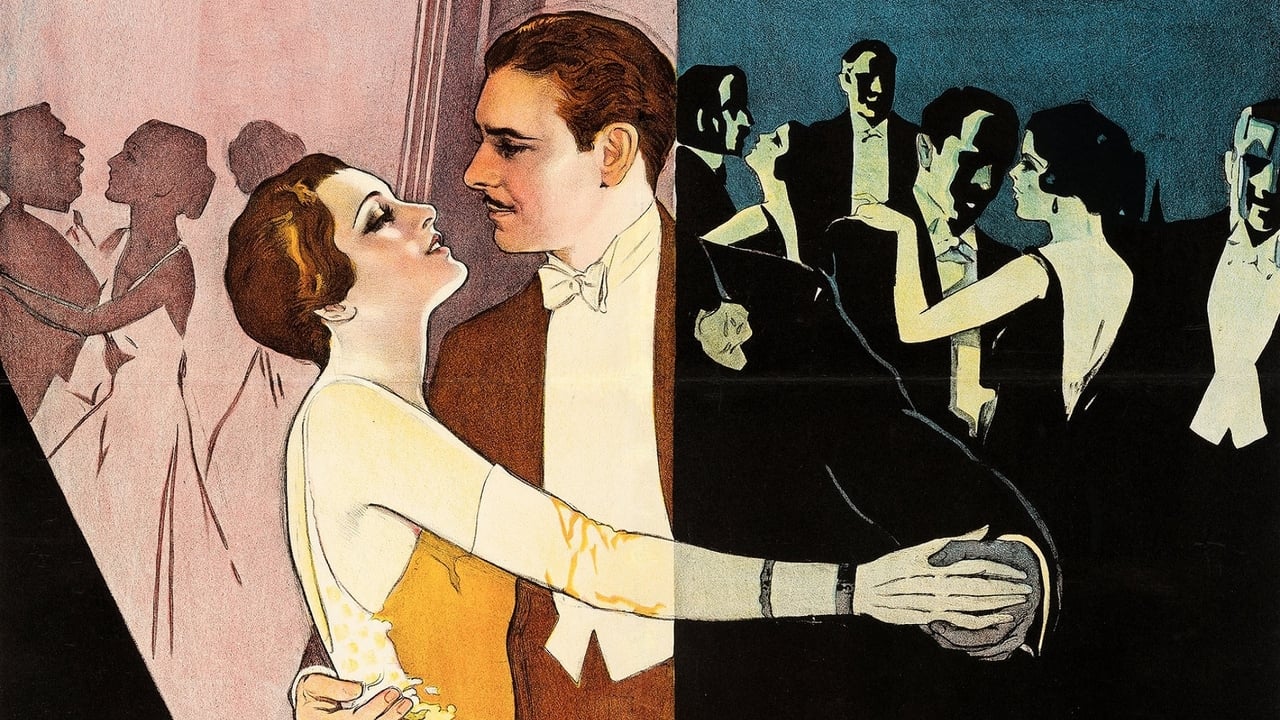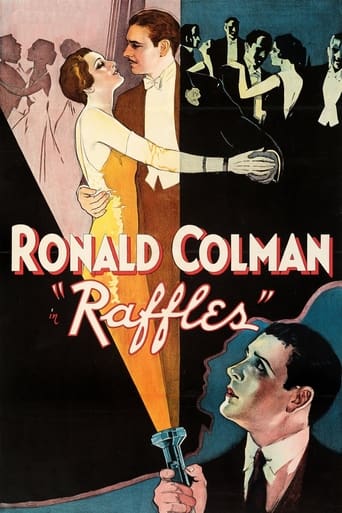Maidgethma
Wonderfully offbeat film!
DipitySkillful
an ambitious but ultimately ineffective debut endeavor.
Sabah Hensley
This is a dark and sometimes deeply uncomfortable drama
Kirandeep Yoder
The joyful confection is coated in a sparkly gloss, bright enough to gleam from the darkest, most cynical corners.
trimmerb1234
Thus went the conversation between Ronald Colman's Raffles and the rich but vast and ageing Lady Melrose after he had courteously escorted her to her bedroom and the two hovered either side of the open door. The lady's expression, which went from bright expectation to annoyed disappointment, left no doubt what was happening. This was pre-Hayes Code and both here and elsewhere it was very obvious. Also the question of Raffle's morality. In the book, Raffles does give some kind of justification for his thieving - "the richly immoral robbing the immorally rich". He also never befriends soon to become victims. Here Colman blithely disregards all of this. The 1939 almost scene for scene word for word remake with David Niven was entirely cleaned up - but weaker and more colourless for it.I'm a great fan of the Raffles books. E W Hornung the author was not so well known as his brother in law, Arthur Conan-Doyle but was though alround a better writer. This film is engaging and quite exciting, brings together parts from different stories and the result is entertaining but in terms of story, thin and slap-dash. The adaptation is dominated by the requirement to continue/assist Ronald Colman's highly bankable screen persona as an elegant, humorous, charming pleaser of ladies.(Raffles in the book is too dedicated to be humorous or charming unless necessary in pursuit of crime). Here Raffles love interest, Kay Francis, is very passionate, unlimited in her devotion to him. Of the two other central characters, companion in crime "Bunny" Manders is reduced to an irrelevance. Curiously the third character in the trio - McKenzie, the "Scotch" detective - alone is the all-time definitive rendering of the character in the book - Raffles' feared Nemesis: dogged, doughty and determined. Indeed the adaptation gives him equal billing with his quarry. It's a joy to watch a character from the books so vividly and truthfully brought to life. Clearly whoever did the adaptation was more interested in and relished McKenzie more than the other two.All in all, a good entertainment.
MartinHafer
Considering that this film came out in 1930, you need to cut its sound a bit of slack. While it's pretty easy to understand the actors talking (better than many 1930 films), because the sound technology was so new it was still far from perfect. The film has a strong and very definite hissing sound to much of it. And, like other films of the early sound era, it's rather quiet because there isn't the usual incidental music in much of the film. This is not a complaint--just an observation. They used such music very sparingly because back in 1927-1930 to get incidental music you literally had to have an orchestra just off camera performing live while the scene was shot--they hadn't yet learned how to add the music later. So, cut the film a bit of slack in this department--it IS pretty good for 1930 and the sound in many films of this and the previous years was a lot worse (such as 1929's "Coquette" which is almost unwatchable due to its WILDLY fluctuating sound)."Raffles" is about a gentleman who is also an amateur thief--and a very talented one. While his society friends adore Raffles (played by Ronald Colman at his charming best) because of his wit, sporting skills and fine manners, they don't realize HE is this thief. Much of the film concerns his attending a particular weekend party in order to steal a necklace so he can use the money to help a friend in dire straits. However, along the way he meets up with a swanky lady (Kay Francis) and he's torn between his life of crime or becoming 100% legitimate for her sake. What will Raffles do? And what will Raffles do when ANOTHER crook shows up as well?! All in all, "Raffles" is a pleasant and a bit too talky film. Personally, I think it would have been better with more outdoor scenes and action. But again, 1930 was still a transitional year for sound and the stagy production was pretty typical. I also thought Raffles' 'brilliant' escape at the end was anything but. However,the acting was good and it was nice to see a detective who was NOT stupid (a common and rather dumb cliché of the 1930s and 40s). Well worth seeing but not among Colman's best work.
JLRMovieReviews
Ronald Colman is Mr. Raffles, a gentlemen, a respected citizen of the community. But, what many don't know is that he's "The Amateur Cracksman," a jewel thief. Apparently, that's how he makes his way. But when he does a job, in order to help a friend out of a jam, things get sticky, as the job's under less than ideal circumstances. Kay Francis is his loving fiancée, whose devotion may be tested when she learns of his deceitful ways. Alison Skipworth portrays the wealthy lady of the house, whose jewels are the apple of his eye. He has even her fooled, as she singled him out as one of her favorite people at her party, where the heist is supposed to take place. To add to the mix, real burglars enter the house and run into Mr. Raffles.Honestly, Ronald Colman has never been one of my favorite actors, as it seems to me that he overacts. The only movies I like with him in it are adventures or historical types, like If I Were King, which is one of my favorite of the genre, and The Prisoner of Zenda. The Talk of the Town and Champagne for Caesar are good, too, but I can think of others I didn't care for, which I won't list here. But the point I was making was that, I really loved this film, because the viewer is immersed into his predicament and the director made good use of time and place. Frankly, I saw this because Kay Francis was in it. But I'm glad I discovered it. I hope you will, too.
Spondonman
The early Goldwyn Colman films had a lovely atmosphere all of their own. Just learning to cope with sound they exhibit an echoey creaky staginess which in turns is charming and irritating when watching a romantic adventure/mystery. Every action was pointed and often laboured with the handed down techniques from silent days, meaning once seen you seldom forget it. It's the same with Raffles, a ridiculous script if there was one (heavily mucked about with from the book) but if you don't see it for 20 years you'd probably remember every act and scene.Raffles has been a reformed ex-Cracksman for a few hours but finds he suddenly has to help his limp friend Bunny repay £1000 within 2 days and he only knows one way to get it. An invite to Lady Melrose's country house for cricket and a garden party of hundreds provides him with the chance – and also a gang of six ineffectual Cockney burglars who skulk around in the dark loudly laying their plans. The scene where the burglar is caught and venomously points out Raffles on the stairs is pivotal to the film but it never recovers from the clumsy handling of it – did Colman know what to say at that point? Colman was great in the role, his clipped accent and perfect diction usually used to good effect. Good support was from Kay Francis who played his understanding girlfriend although she didn't get to say Divine, and David Torrence the chunky and heavily cloaked Scotland Yard Inspector. Favourite bit: the torchlit confrontation between Raffles and Crawshay in the bedroom at midnight.Simple old fashioned entertainment - I stick it on every few years without fail because with all its faults I like this one.

